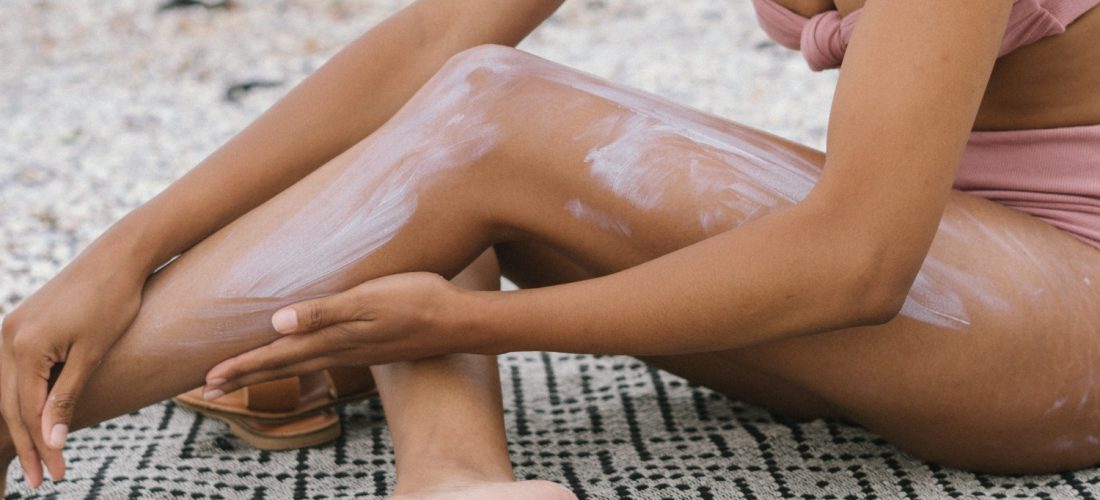Summer is around the corner and temperatures in the DMV are already rising with last weekend hitting highs of 95 degrees.
With weather like that, it’s important to protect your skin and Friday May 27 is National Sunscreen Day, so WHUR’s Shawna Mizelle asked a dermatologist about the myth that Black people don’t need sunscreen.
Dr. Melanye Maclin broke down the facts and everything you need to know about sunscreen this summer.
Is it true that Black people don’t need sunscreen? Why or why not??
Dr. Maclin: FALSE! Black skin, although increased color from more pigment producing cells called melanocytes, must use daily sunscreen! All shades of black are just as susceptible to damage as any other race.
Black skin can still get sunburn, premature aging effects causing wrinkles and even skin cancer, especially melanoma.
Why do you think this myth is so widespread?
Dr. Maclin: From a historical basis, our traditional Black family mindset has always thought and shared for many generations that our darker skin color protected us from damage. Honestly, many still believe this to be the case hence why ongoing sunscreen information is needed.
Can Black people get sunburnt?
Dr. Maclin: ABSOLUTELY especially from Ultraviolet B (UVB) to skin during excess exposure while out in high sun times (10am-4pm). Think of the “B for Burnt”. Ultraviolet A(UVA) plays less of a role in burning as more damage causing early aging (fine lines and wrinkles..think “A for Aging”). Regardless, both can cause Black skin to burn.
What risks are posed when Black people do not wear sunscreen?
Dr. Maclin: The risks are same in all races and nationalities who do not use sunscreen. Black skin can still get a sunburn, develop early aging signs (fine lines and wrinkles), sun exacerbated skin rashes (Ex. Lupus, photodermatitis) and skin cancer, especially melanoma.
Melanoma is very serious and is found mostly on acral areas of our body (scalp, ears, nose, palms, soles, between toes). This can go unnoticed or think it is a common mole but can be very aggressive resulting in potential death from spread to organs. Critical to get a full skin check once a year by your doctor, preferably a dermatologist. You can also personally take pictures of any dark spots to keep track of colors and changes in size or irritations.
Sunscreens you recommend? How much SPF?
Dr. Maclin: I highly recommend daily use of any Broad Spectrum Sunscreen which contain essential ingredients that protect against both UVA and UVB rays.
Effective Sunscreens should contain at least 30 SPF (Sun Protectant Factor). Higher are better and up to 97% block UV rays but none are 100% . They should also be water-resistant although no sunscreens are fully waterproof. They must be reapplied every two hours if outdoors even on cloudy days and if sweating or in water.
If sensitive skin or allergic to any of the chemical ingredients, look for suncreens with zinc oxide or titanium dioxide which coat skin that physically block rays.
Not using any sunscreen is NOT an option and only wearing light weight long sleeve protective clothing and wide brim hats do not replace daily importance.
